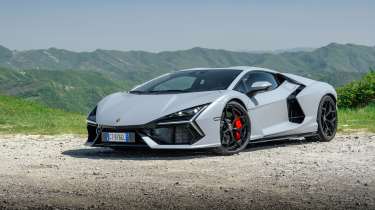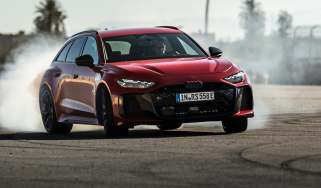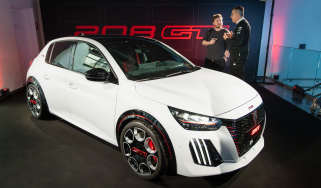This is why youngsters aren't interested in cars
Youngsters not into cars any more? The remedy’s obvious, reckons Richard Porter

It’s sometimes said that young people aren’t interested in cars any more. In the last few years respectable publications from Forbes to The Economist have run lengthy articles about folk under 25 and their apparent disinterest in driving. The Daily Telegraph thrives on this sort of coverage, as it would since its strange transformation into a Home Counties clickbait machine. One of the big signifiers of young people feeling no love for cars is that they’re seemingly unhurried to get a driving licence. Previous generations were practically banging on the door of the local test centre within weeks of their 17th birthdays whereas, according to stats that show a fall in licence holders under 25, today’s late teens aren’t so fussed.
A Covid-caused backlog in theory and practical test appointments didn’t help, but there are other factors too. Learning to drive is expensive, and that’s before you get to the cost of owning a car, what with the price of fuel and a spike in insurance prices so violent even those of us over 25 now have to go compare what life was like when we still had two kidneys. Add in a young person’s faith in the app-based economy, where your phone can be used to summon up a cab or a ride share or, for licence holders, by-the-hour car rental, and you can see why the idea of saddling yourself with the ongoing cost of car ownership doesn’t appeal.
If you’re older, and you’re into cars, you could also claim that young people aren’t smitten with cars because cars aren’t exciting any more. ‘It’s all just EVs and SUVs,’ moans the most boring man in any given pub, as if when he were a lad he was absolutely thrilled by the Renault 9 and Datsun Stanza. Today there are still plenty of cars that aren’t electric or SUVs and which are saucy and exciting, so how do we get young people interested in those and, by extension, in cars generally? I think the answer is obvious: posters.
When I was a kid, which I’m still pretending wasn’t that long ago even though I can vaguely remember the Falklands War, car posters were a big deal. A red Testarossa, a white Countach, perhaps for some leftfield appeal something really nutty like a Vector W8 or Cizeta V16T. And this wasn’t just for small boys in the UK. My wife grew up 5000 miles away in the US and even she had a car poster on her wall. It was of a Porsche 911, since you ask.
Car posters gave you not only something striking to look at, but also something to dream of. And once you were dreaming of a car, you were on the glide slope to dreaming of getting a licence so that one day, maybe, you might get to drive that exotically slotty Ferrari or extravagantly winged Lambo. But my kids don’t have car posters on their walls. They have things in frames and carefully curated pin-boards, not ragged pages from Performance Car excitedly Blu Tack-ed to woodchip.
What’s changed here? Well, one thing to blame is supercars themselves. Once upon a time supercars really were rare, not least because getting one was hard work, possibly necessitating multiple trips to what our parents used to call ‘the continent’ to carry out delicate and direct negotiations with the factory. Or at the very least a journey to visit a retired army man with a lone showroom at the other end of the country who had, for no readily explicable reason, become the sole UK concessionaire for an entire car company. As a result, there just weren’t that many supercars on the streets. Whereas now in any major city in Britain there’s a strong chance that you’ll see at least one wedgy exotic kerbside by dint of the companies that make them now being slick and professional operations with multiple outlets.
The wages now paid to professional footballers might have something to do with this. In the ’60s the average pro player would have been happy with a Cortina and a few extra shillings for endorsing a company that made pipe tobacco. Now some players have a one-McLaren-a-week habit to feed. And all of this has made supercars, the top flight of the car kingdom, a tiny bit less special. But that shouldn’t prevent the return of the poster. After all, you could argue that we’re in a real golden patch for good-looking supercars. The McLaren 750S is a mighty striking thing. The Artura’s not half bad either, nor the gorgeous Ferrari 296 GTB. And as for the fabulous new 12 Cilindri, well it’s just crying out for some soft ’80s studio lighting playing across its gorgeous shape, immortalised on shiny A3 and gummed inspiringly above one of those three-quarter-scale kid desks.
If, as it’s sometimes claimed, young people aren’t fussed about cars, we need to get them interested again and nothing does that like having a fabulous car in daily sight on a poster in the room where you sleep. Honestly, where’s Athena when you need it?



